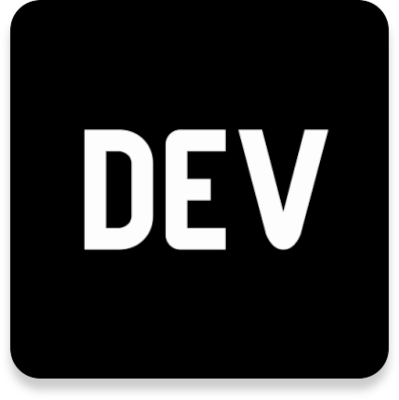10 programming blogs worth following
Dagmara Czarnota , 2 June 2021

The IT industry is one of the fastest-growing industries around the world. Increasingly, new technologies are appearing on the market to help developers build technological products or increase the efficiency of created solutions. One way to learn about new technologies used by developers is to regularly read IT blogs.
Programming blogs not only deliver information about new trends in IT and teach about technologies but also deepen already acquired knowledge. Many bloggers publish posts describing the process of building a specific functionality. Thus, reading blogs can also be a good way to learn to code. Besides, there is always the option to comment on a post or contact its author if you have some problems with writing the code or understanding it.
Some bloggers post once a week, others twice a week, and some every day. Reading this kind of educational material is a good way to learn about new libraries and interesting features of programming languages or frameworks.
Hacker Noon
Hacker Noon is a well-known and frequently read blog. The content creation process is what makes it different from other blogs. Hacker Noon doesn’t have a team of authors – the posts are created by the whole community. Currently, there are over 12,000 active users, some of whom publish articles regularly. The authors are most often IT specialists, founders of software development companies, or startup owners. Sometimes, articles are written even by venture capital funds. As a result, a large number of authors generate a lot of interesting and original content in categories such as coding, software development, technology, cryptocurrencies, JavaScript, Python, React, and artificial intelligence. The variety of content makes it a suitable place for both novice programmers and IT experts. Before publication, all articles are checked by Hacker Noon specialists in terms of correctness, legal aspects, and quality.
Geeks for geeks
Geeks for geeks is a useful blog for novice developers. The content published on the blog covers programming languages such as C, C ++, Java and Python, web application development, and machine learning. The educational material is organized to guide developers step by step. Firstly, you can read articles containing basic information about the technology and its installation environment. Next, you are provided with articles about data types, the operators used, and basic functions. When you finish learning the basics, you can move on to more advanced topics, e.g. the use of specific frameworks and libraries. Developers can easily learn programming from almost every post because they contain code snippets that are needed to build a specific functionality. Also, the articles use examples, which makes it easier for the reader to understand the issue.
David Walsh Blog
David Walsh is a web development specialist. He currently works at MetaMask but has been responsible for Mozilla's development for a long time. In his free time, he writes posts for the David Walsh Blog. Most of the published articles are related to David's specialty – building websites. Walsh writes about various useful JavaScript libraries and the creation of functionalities in React.js or Node.js. Besides typically technical content, he also posts about professional experience and advice. Currently, Walsh has over 83,000 followers on Twitter.
CSS-Tricks
CSS-Tricks is another blog for web developers. As the name suggests, the articles contain various tips and tricks on the use of cascading stylesheets. The blog is managed by a team of experienced developers who post every day. However, most articles are written by the founder of CSS-Tricks, Chris Coyier. The blog covers technologies such as Javascript, WordPress, Vue.js, React.js, and jQuery. Thanks to promotion in social media, CSS-Tricks has a large group of regular readers. Over 486,000 people follow the official CSS-Tricks profile on Twitter.
DEV Community
DEV Community is a platform combining certain elements of social media with a traditional blog. Anyone can publish articles on various programming topics. Developers can share their experiences, provide advice, and write tutorials to teach various programming languages and frameworks. Some users create special challenges to motivate others to learn new technologies. For example, in the event "49 Days of Ruby Learning," an article was published every day describing issues related to coding in Ruby. The first posts discussed the basics of writing code in this technology. Later ones explained more complicated issues. Currently, there are over 619,000 registered users on the platform. Everyone can interact with the authors of posts by asking questions in the comments section, or follow certain authors to be up to date with the articles. DEV Community is a good place for both novice developers and IT specialists. Many authors create a huge amount of content, and everyone can find something for themselves here.
Hackr.io
Hackr.io is a blog intended particularly for developers looking for courses and tutorials on programming in a given technology, and a good place to find some tips on where to look for useful learning material. Also, many articles contain overviews and recommendations of various courses, both free and paid. Each blog guide has been written with a specific structure, and as an example, we will use the Python learning guide. The first articles feature an introduction for developers and explain why they should learn to code in Python. Next, you can read about issues related to downloading and running Python on a selected development environment. The next articles introduce courses that teach the basics of Python programming and include links to them. Both paid and free courses are mentioned, including certification courses. These articles also contain information about the most commonly used frameworks. What is more, some blog posts concern the recruitment process, including the most frequently asked questions in interviews as well as answers to them.
Joel on Software
Joel on Software is an American blog created by Joel Spolsky, a developer who worked for Microsoft during the development of Microsoft Excel. His team was responsible for the development of VBA (Visual Basic for Applications). Shortly after leaving Microsoft, Joel established his own company, Fog Creek Software (now Glitch) which created Trello, Stack Overflow, FogBugz, and Copilot. Spolsky has extensive experience in Windows software development and has been sharing it on his blog for over twenty years. Joel writes not only about technical matters but also about project management and business management.
Java, SQL, and JOOQ
Java, SQL, and JOOQ is a blog addressed to Java developers and analysts working with relational databases based on the SQL language. The articles contain useful information about database creation and complex queries. Also, many posts discuss the jOOQ library, which is used for mapping Java databases. Thanks to Java classes created using the jOOQ database, it is easier to manage data.
Better programming
Better programming is another blog created by the developer community. Each day over a dozen new articles are posted. The blog contains information about building specific functionalities in different languages and testing the developed software. Many posts provide advice on choosing the best libraries and frameworks. Also, some authors write about the recruitment process, including commonly asked questions and how to prepare for an interview with an IT recruiter.
Coding Horror
Coding Horror is a blog by Jeff Atwood, who specializes in building websites. Jeff and Joel Spolsky (Joel on Software blog) built Stack Overflow and Stack Exchange Network (previously known as StackExchange). Readers appreciate Jeff not only for his knowledge but also for his sense of humor. Atwood describes the difficult issues related to building websites in an accessible and understandable way. His account on Twitter is followed by over 280,000 people.
Nowadays, developers have a wide choice of programming blogs written by experts. Choosing the right one depends on the technology and experience of the coder. Some developers not only read articles but also participate in their creation. Jeff Atwood posted that he blogs for selfish reasons, because thanks to writing articles and interacting with readers, he gains more knowledge himself. Therefore, both readers and authors benefit from blogs.









